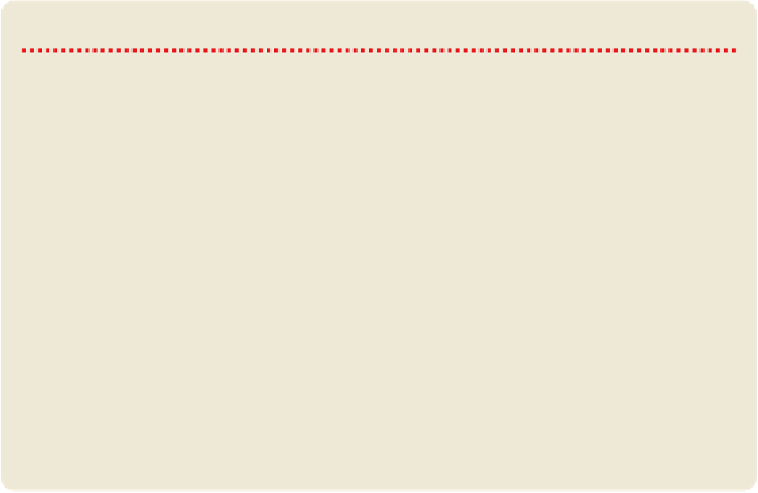Travel Reference
In-Depth Information
THE PERANAKANS
Peranakan means 'half-caste' in Malay, which is exactly what the Peranakans are: descendants of Chinese immig-
rants who from the 16th century onwards settled principally in Singapore, Melaka and Penang and married Malay
women.
The culture and language of the Peranakans is a fascinating melange of Chinese and Malay traditions. The Per-
anakans took the name and religion of their Chinese fathers, but the customs, language and dress of their Malay
mothers. They also used the terms Straits-born or Straits Chinese to distinguish themselves from later arrivals
from China.
Another name you may hear for these people is Baba-Nonyas, after the Peranakan words for men
(baba)
and
women
(nonya)
. The Peranakans were often wealthy traders who could afford to indulge their passions for sump-
tuous furnishings, jewellery and brocades. Their terrace houses were brightly painted, with patterned tiles embed-
ded in the walls for extra decoration. When it came to the interior, Peranakan tastes favoured heavily carved and
inlaid furniture.
Peranakan dress was similarly ornate. Women wore fabulously embroidered
kasot manek
(beaded slippers) and
kebaya
(blouses worn over a sarong), tied with beautiful
kerasong
(brooches), usually of fine filigree gold or sil-
ver. Men - who assumed Western dress in the 19th century, reflecting their wealth and contacts with the British -
saved their finery for important occasions such as the wedding ceremony, a highly stylised and intricate ritual dic-
tated by
adat
(Malay customary law).
The Peranakan patois is a Malay dialect but one containing many Hokkien words - so much so that it is largely
unintelligible to a Malay speaker. The Peranakans also included words and expressions of English and French,
and occasionally practised a form of backward Malay by reversing the syllables.
The Indians
Like the Chinese settler, Indians in Malaysia hail from many parts of the subcontinent and
have different cultures depending on their religions - mainly Hinduism, Islam, Sikhism
and Christianity. Most are Tamils, originally coming from the area now known as Tamil
Nadu in southern India where Hindu traditions are strong. Later, Muslim Indians from
northern India followed along with Sikhs. These religious affiliations dictate many of the
home life customs and practices of Malaysian Indians, although one celebration that all
Hindus and much of Malaysia takes part in is Deepavali.
A small, English-educated Indian elite has always played a prominent role in Malaysian
society, and a significant merchant class exists. However, a large percentage of Indians -
imported as indentured labourers by the British - remain a poor working class.
The Orang Asli
The indigenous people of Malaysia - known collectively as Orang Asli - played an im-
portant role in early trade, teaching the colonialists about forest products and guiding pro-

